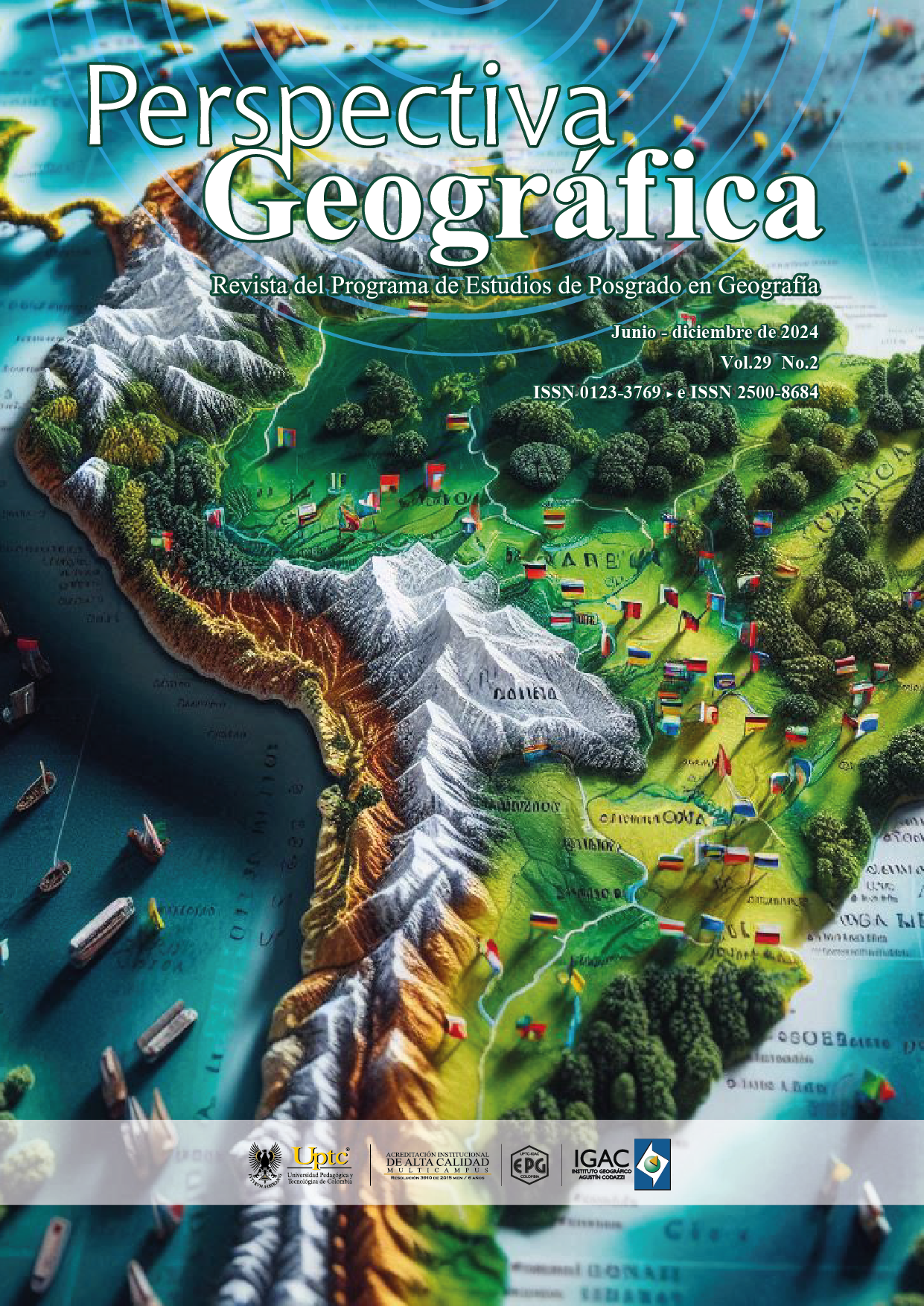Transcendent feminism: the experiential practices of our grandmothers

Abstract
This article explores the feminist practices bequeathed by our grandmothers, through transcendence, even if in everyday life the word is not mentioned and/or known by the subjects, but which in its essence is present, as it is transmitted through advice, narratives, popular sayings, and lived experiences. It acquires a rational nature and was apprehended by the researchers in an organic way, incorporating them into consciousness as absolute truths in relation to feminist actions and practices. In the course of the research, concepts related to transcendence and inner access were explored, as addressed by authors such as Husserl (2006) and Stein (2003). The investigation was also based on studies on collective and individual memory, with references in Halbwachs (1990) and Bachelard (2008). Additionally, the approach entered the field of feminist geography in the Brazilian Amazon, using the contributions of authors such as Simonian (2001), Nascimento Silva (2000, 2004, 2011), and Dourado da Silva (2017, 2020). The method adopted is phenomenology, which seeks to understand the phenomenon itself, according to Stein's (2003) empathetic approach. The methodological procedures of the research included bibliographic analysis, interviews, and, above all, life reports, both collective and individual. Along this path, she delved into the exploration of the reports of the interviewees' own experiences, in which she revealed the great importance of these experiences in the formation of resilient women in the face of an oppressive patriarchal system, which pointed out that even in the face of confrontations, they managed to achieve female empowerment, which stands out in the following categories: fight against stereotypes and social expectations, focus on the education of children, resilience, and facing adversity.
Keywords
Geography and gender, Feminism in the Amazon, Supra-individual experiences, Phenomenology
References
- Ales Bello, A. (2006). Introdução à fenomenologia / Angela Ales Bello; tradução Ir. Jacinta Turolo Garcia e Miguel Mahfoud. Bauru, SP: Edusc.
- Ales Bello, A. (2015). Pessoa e Comunidade: comentários: psicologia e ciências do espírito de Edith Stein.; tradução Miguel Mahfoud, Ir. Jacinta Turolo Garcia. Belo Horizonte. Ed: Artesã.
- Bachelard, G. (2008). A poética do espaço. São Paulo: Editora Martins Fontes.
- Dourado da Silva, S.; Almeida Silva, A. (2020). O Protagonismo Invisibilizado da Mulher na Floresta da Amazônia Acreana. Revista Latino Americana de Geografia e Gênero, v. 11, n.1, p. 20 34, 2020. ISSN 21772886.
- Dourado da Silva, S. (2017) Mulheres como Propulsoras de Desenvolvimento Econômico Solidário: Uma Análise dos Empreendimentos Solidários no Município de Rio Branco. Dissertação (Mestrado em Geografia), Universidade Federal de Rondônia, Porto Velho - RO.
- Dourado da Silva, S. (2024) Meus passos, meu caminhar: análise da reconfiguração espacial urbana de Rio Branco a partir do empreendimento habitacional Cidade do Povo e a configuração dos marcadores territoriais transitórios. Tese (Doutorado em Geografia), Universidade Federal de Rondônia, Porto Velho - RO.
- Geledés. Portal de Notícias. (2014). E eu não sou uma mulher? Por Sojourner Truth. Tradução: Osmundo Pinho. Publicação: 08/01/2014. Disponível em: https://www.geledes.org.br/e-nao-sou-uma-mulher-sojourner-truth/.
- Guattari, F. (1992). Da produção da subjetividade. In: Guattari, Félix. Caosmose: um novo paradigma estético. Rio de Janeiro: Ed. 34.
- Halbwachs, M. (1990). A memória coletiva. – São Paulo: Vértice, Ed. Revista dos Tribunais.
- Husserl, E. (2006). Ideias para uma fenomenologia pura e para uma filosofía fenomenológica: introdução geral à fenomenologia pura. / Tradução Márcio Suzuki. – Aparecida, SP: Ideias & Letras.
- Nascimento Silva, M. G. S. (2011) Geografia e Gênero em assentamentos rurais: Espaços de poder. In: SILVA, J. M.; SILVA, A. C. P. (Orgs.). Espaço, gênero e poder: conectando fronteiras. Ponta Grossa: Todapalavra, p. 137-147.
- Nascimento Silva, M. G.S. (2000). O Espaço Ribeirinho. São Paulo. Editora Terceira Margem.
- Nascimento Silva, M. G.S. (2004). Parteiras ribeirinhas: saúde da mulher e o saber local. Tese de Doutorado (em Ciências Socioambiental e Desenvolvimento Sustentável) - Universidade Federal do Pará, Núcleo de Altos Estudos Amazônicos. Belém-Pará.
- Organização das Nações Unidas – ONU. (1948). Declaração Universal dos Direitos Humanos. Disponível em: https://www.unicef.org/brazil/declaracao-universal-dos-direitos-humanos.
- Perrot, M. (1988). Os excluídos da história: operários, mulheres e prisioneiros. Tradução Denise Bottmann. – Rio de Janeiro: Paz e Terra.
- Silva, J. M.; Nascimento Silva, M. G. S. (2014). Introduzindo as interseccionalidades como um desafio para a análise espacial do Brasil: em direção às pluridiversidades do saber geográfico. In: Interseccionalidades, gênero e sexualidades na análise espacial / Organização Nascimento Silva, M. G. S., Silva, J. M. Ponta Grossa, Toda Palavra. 360 p.
- Simonian, L. T. L. (2001). Mulheres da Amazônia brasileira: entre o trabalho e a cultura. Belém: UFPA/NAEA.
- Stein, E. (2002). Contribuciones a la fundamentación filosófica de la psicología y de las ciencias del Espíritu. In. Obras Completas II. Escritos Filosóficos (Etapa fenomenológica: 1915-1920). Editorial Espiritualidad. p. 207-503.
- Stein, E. (2003). Estructura de la persona humana. In: Obras Completas IV. Escritos Antropológicos y pedagógicos. (Magisterio de vida cristiana, 1926-1933). Editorial Espiritualidad p. 555-749.
